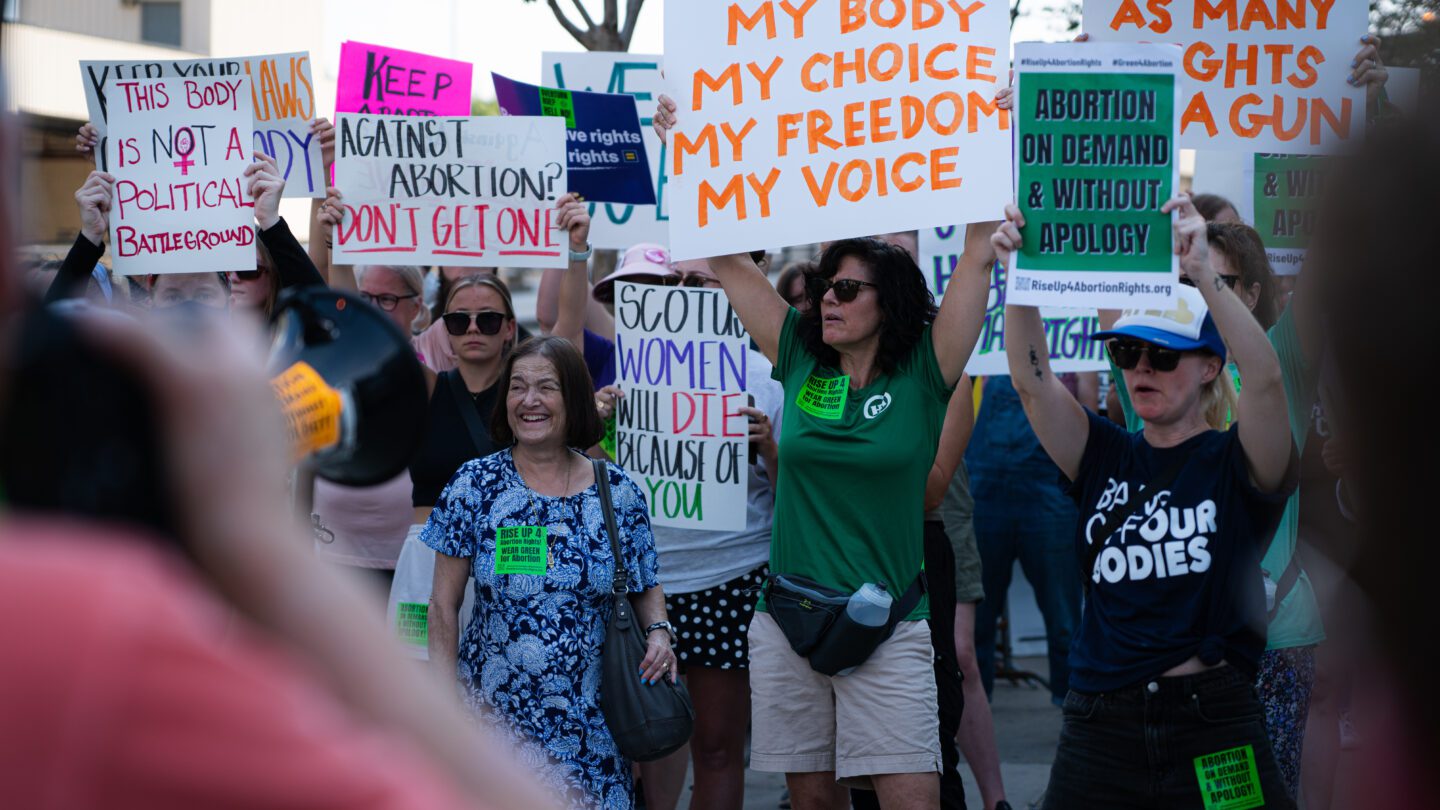This week marks two years since Georgia’s abortion restrictions took effect.
And while the state’s abortion law, H.B. 481, continues to be challenged in the courts, more Georgians are traveling out of state — and traveling farther — to access the procedure, according to an abortion research group.
By the time Trenity found out she was pregnant, she was already too late to get an abortion in Georgia. Her pregnancy was beyond the state’s six-week cut-off.
“The first thing that came to my head,” she said, “was like, ‘Oh my God, what am I going to do?’”
We’re not using her last name to protect her privacy.
The single south-metro twentysomething already had two young children at home. She took care of most of their caregiving and financial needs.
Trenity said she knew she wasn’t ready for another baby.
She tried getting an abortion in Georgia and remembers her shock at learning that the state had outlawed abortion after around six weeks’ gestation.
“I didn’t even know the laws changed. I was really devastated when I found out I couldn’t get one here at home,” Trenity said.
So, to end her pregnancy, she’d need to travel across state lines.
Eventually, she ended up flying all the way to New England for an abortion.
Data show this situation is increasingly common since the United States Supreme Court overturned Roe v. Wade two years ago, allowing states to set their own abortion laws, according to the Guttmacher Institute, a research group that supports abortion rights.
Georgia is among the abortion ban states seeing more patients traveling to clinics in states with fewer restrictions.
That’s even as more than 60% of abortions in the U.S. are now done with medication, up from 53% in 2020.
“We’re still going to do what we need to do to get people the access that they need,” said Leah Jones, deputy director of SisterSong, lead plaintiff in a lawsuit challenging H.B. 481, which took effect on July 20, 2022, following the Roe ruling.
The Atlanta-based SisterSong connects patients across the South who can’t afford travel, childcare or other abortion-related expenses to funding options.
It also provides financial help through its Birth Justice Care Fund, which SisterSong initially launched in 2020 to support maternal health needs during the COVID-19 pandemic.
It offers qualifying pregnant and postpartum patients in Georgia, Kentucky, North Carolina and Florida financial assistance to pay for maternal health services, including mental health counseling, lactation assistance and doula care.
Jones said abortion restrictions that have taken effect over the last two years are fueling an increase in calls for help from SisterSong’s fund from pregnant and postpartum patients.
The group is working to expand its services nationwide.
“People are being forced to move through their pregnancies if they aren’t able to receive access to abortion services,” she said. “So, you see more demand for maternal mental health care, you see more of a demand for full-spectrum doulas, and you see more demand for just advocacy.”
In Trenity’s case, SisterSong covered thousands of dollars in expenses for airfare, a couple of days in a hotel and ground transportation in New England. It also paid for the cost of the abortion and related services, which came to more than $1,300.
Trenity said she was grateful for the help. Without it, she could not have afforded the trip.
“It made me feel a little better about the situation, like I wasn’t stuck where I didn’t want to be stuck at,” she said.
But she wishes she never had to travel for care in the first place. She said she believes anyone who’s pregnant should have the right to decide for themselves whether to have a child.
And if they decide not to, she said they should be able to access abortion in every state, including Georgia.
“No one on Earth should be able to tell a woman what to do with her body,” she said.
Not everyone agrees with that idea.
Groups that oppose abortion access in Georgia are ramping up a push for further restrictions on the procedure in the state since the toppling of Roe protections.
Republican Gov. Brian Kemp, who signed H.B. 481 in 2019, continues to support abortion limits.
A lawsuit over the six-week abortion ban is still working its way through Fulton County Superior Court.
A decision from the trial court could come as early as this year.









